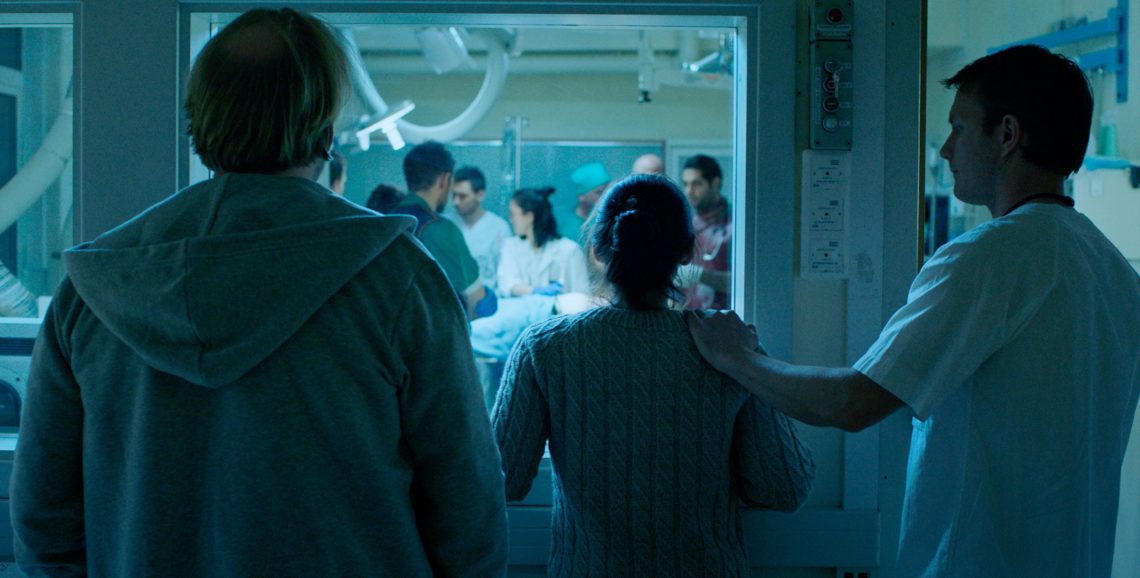
Blind Spot Interview: Tuva Novotny
“Now, more than ever, it is extremely important to use this momentum and use it well, to lay a foundation for a future where stories are told by and for all genders, ethnicities, nationalities.”
BLIND SPOT wrecked me.
The film starts with a young girl going about her after school routine until tragedy strikes and you have to figure out what happened. Told in what feels like one long take, BLIND SPOT explores the helplessness of a family when the cause of the catastrophe is unknown.
This is a quiet and subtle film that showcases lead actress Pia Tjelta, who plays the mother. The long take centred on her face is heartbreaking and demanding as a viewer, I can’t imagine what it was like to film.
BLIND SPOT is a stunning debut from Tuva Novotny. She explores the issues of mental health, suicide and trauma in ‘real time’ to showcase the confusion of the aftermath.
As we learn the events that led up to the act, we watch as the family tries to piece together years of moments shared; sifting through abandoned comments in the hope they will discover what slipped behind their blind spot.
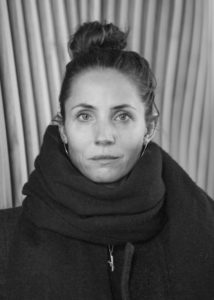 Tuva Novotny is an actress, writer and director based in Sweden. BLIND SPOT is her debut feature film and is based on her own original script. As an actress, she has appeared in the films Borg/McEnroe and Annihilation and you can see her episodic direction on the Norwegian shows Dag and Lilyhammer.
Tuva Novotny is an actress, writer and director based in Sweden. BLIND SPOT is her debut feature film and is based on her own original script. As an actress, she has appeared in the films Borg/McEnroe and Annihilation and you can see her episodic direction on the Norwegian shows Dag and Lilyhammer.
You can see BLIND SPOT at this year’s Toronto International Film Festival, screening as part of Discovery on September 16th at 3:45PM.
Tell us a little bit about yourself and how you got involved with filmmaking.
Tuva Novotny: I was raised in theatre and moviemaking, and started off as an actress in my teens. The transition to writing and directing grew organically and never felt like a big leap.
Tell us about Blind Spot. Where did the idea come from?
TN: Both on a personal and societal level, I sensed a lack of psychological tools, and accurate language to address mental illness. I wanted to explore the blind spots between us; the space where our mental health becomes a stigma, where some people get isolated and lonely because of all the things we don’t ask or tell each other about.
Ultimately, the idea came from a deep wish to communicate to others what I had learned in my own therapy: talking about our mental state, helps us feeling less lonely; de-stigmatizes the situation, and can help prevent suicide.
The film looks as though it is filmed as one continuous shot. Why did you decide to tell the story this way?
TN: Editing is a very powerful tool in moviemaking, and as I really wanted to keep a sober gaze at the subject, a real-time take was the only way I felt this could be done. I did not use any music or score for the same reason and only used five actors- the rest of the ”cast” are all professional doctors, nurses, paramedics and so on.
Again, to be as authentic and respectful to the subject as possible—but most importantly: to have a clear preventative policy. Dramatizing or Romanticizing mental illness and suicide shows to inspire young people, instead of helping them.
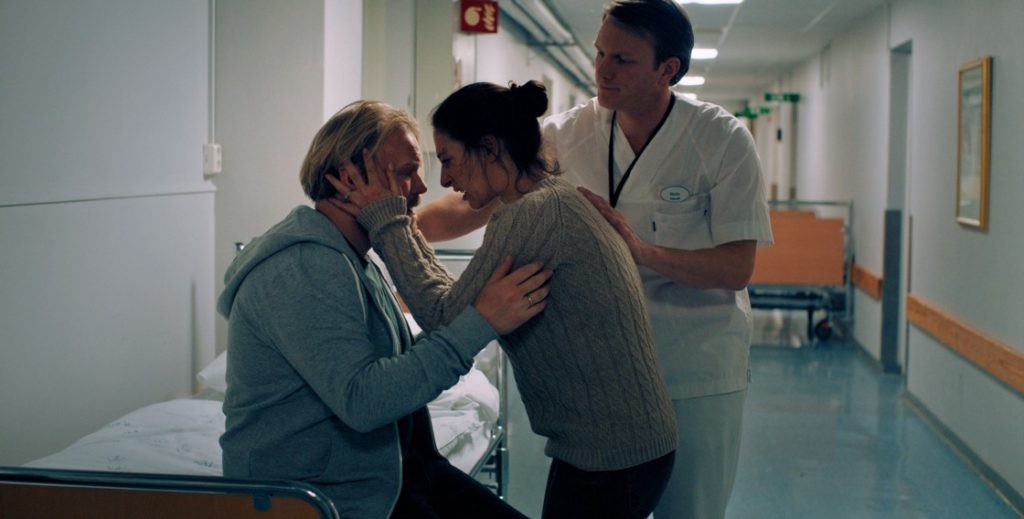
Blind Spot is all about trauma and mental illness. What do you hope viewers take from this film about these topics?
TN: As above; that talking openly about one’s mental state can actually help, by asking straightforward questions, you burst the bubble of isolation a lot of people experience going through mental illness. The main message is “you are not alone”.
Can you tell us about some/all of the other amazing women who worked on this film?
TN: First of all, I was so lucky working with my best friend Pia Tjelta in the lead role — a great woman and artist who threw herself fearlessly into this quite challenging project. Besides Pia, I am so proud to work at equal terms with a crew and cast that was equally put together too. I don’t really see or operate too much with gender, but I always work deliberately against discrimination and inequality.
Tell us about why you are a feminist and why it’s important to your filmmaking.
TN: For me, feminism is the norm: I prefer to call myself an equalist, to widen the perspective.
But obviously, I rarely see female characters that I can relate to, believe in or see myself in, and I, therefore, believe equality is enormously important to nurse at this time, as the world is finally opening up towards diverse storytelling and representative movies, rather than the selective culture we have been fed with throughout history.
Now, more than ever, it is extremely important to use this momentum and use it well, to lay a foundation for a future where stories are told by and for all genders, ethnicities, nationalities and so on. I, like everyone else, need movies and stories to relate to, stories that represent the world as we see it.
That is why equality and diversity is so important — the whole meaning of moviemaking is to talk to an audience across all boundaries — and hopefully, help each other understand one another better.
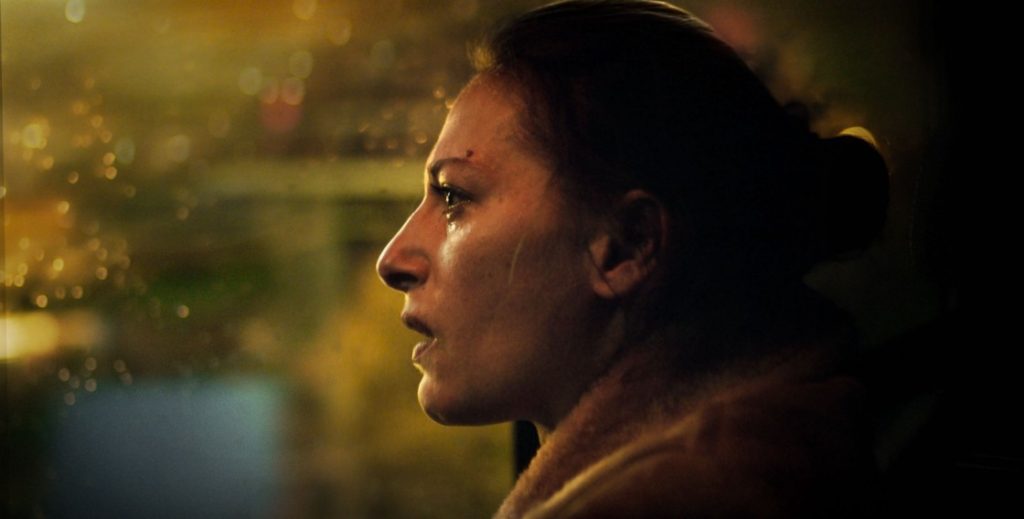
Who are your favourite women working in the film industry?
TN: I love Lynne Ramsay‘s work, Jill Soloway‘s and Isabella Rossellini (if you haven’t watched Rossellini’s Green Porno, do so now). Their art and gaze is all that: diverse, representative, and very brave.
What’s the best advice about filmmaking you’ve ever received?
TN: Trust your gut, do your thing, and work hard.
What are you working on now/next?
TN: I’m editing my next movie, opening this Christmas across Scandinavia — Britt Marie was here a movie about a 63-year-old woman who gets divorced after 40 years of marriage, and starts her life over.
That tagline makes me happy: way too rare that a woman plus 60 is a lead!
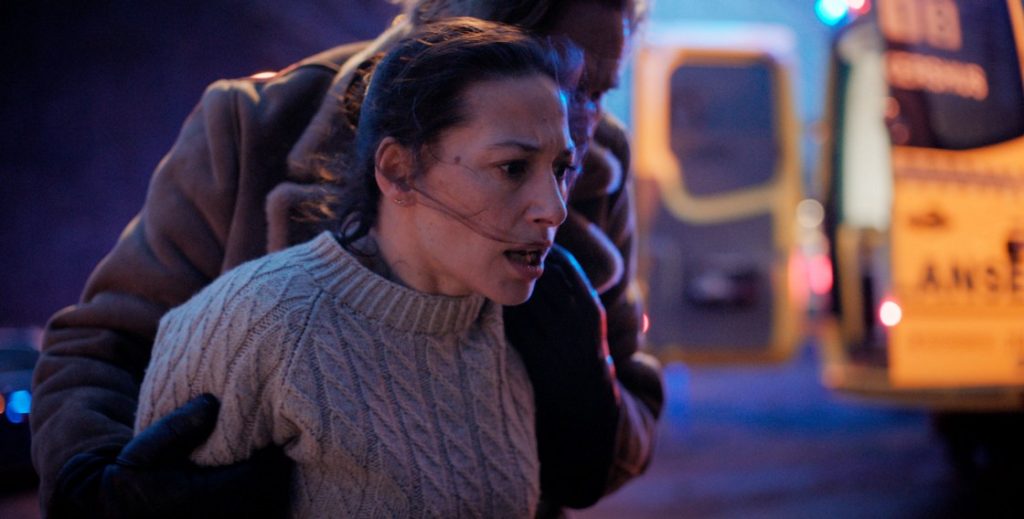
What was the best thing that happened to you this past week?
TN: Getting overwhelmingly thoughtful and warm reviews on Blind Spot in Norway, and waking up in the country house with my family, going for a swim in the ocean.
What three people, living or dead, would you invite to your fantasy dinner party?
TN: Albert Camus, Greta Garbo, and Mother Mary (Charles Darwin and Augustine of Hippo would too be very nice).
Finally, recommend one #MUFFApproved** film for our blog readers!
TN: Blind Spot of course 🙂
*This post was originally featured on The MUFF Society.*

